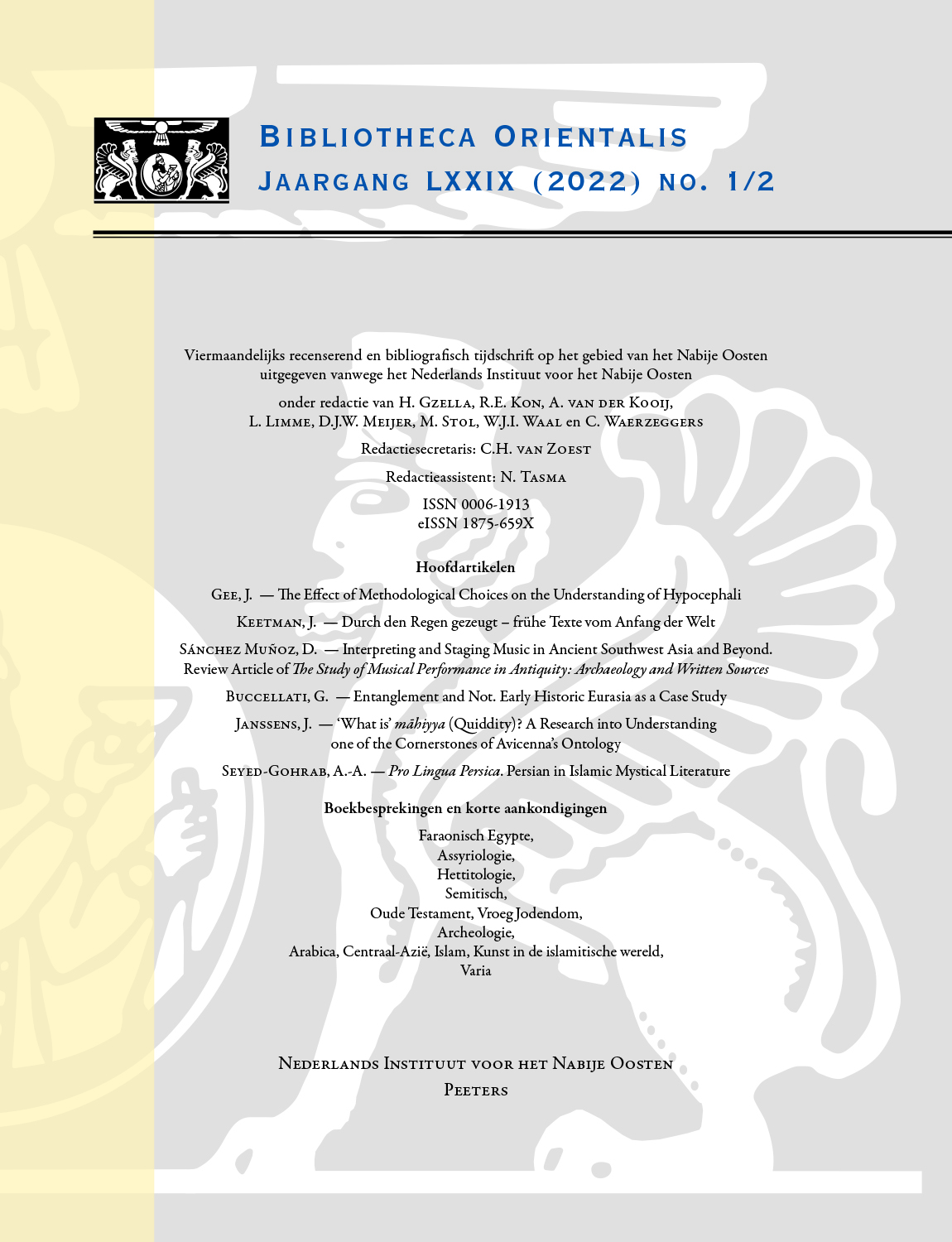 previous article in this issue previous article in this issue | next article in this issue  |

Preview first page |
Document Details : Title: Cognitive-Linguistic Confusion Author(s): COOK, John A. Journal: Bibliotheca Orientalis Volume: 72 Issue: 3-4 Date: 2015 Pages: 294-302 DOI: 10.2143/BIOR.72.3.3115438 Abstract : Robar’s cognitive-linguistic approach would appear to be a welcome voice in Biblical Hebrew verb and discourse study. The focus of her work is the relationship between thematic continuity and discontinuity and the finite verbal forms. But the conclusions are problematic because of the inchoate character of the study. Robar largely limits her study of the indication of thematic continuity and discontinuity to the finite verbal forms while admitting that alternative linguistic strategies may be employed for these purposes. She analyzes the semantics of the finite verbal forms, but she interacts little with current semantic theories of the Biblical Hebrew verbal system, nor does she give treat the finite verb forms as a system. In this review I assess the main claims of her theory and some of the specific arguments she makes. |
 |


